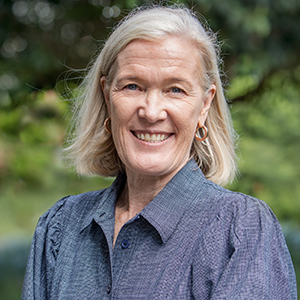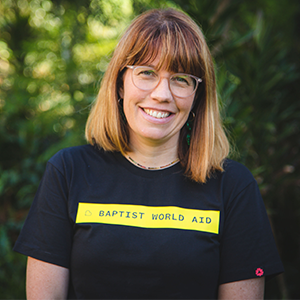Hebrews 12:1-3
Therefore, since we are surrounded by such a great cloud of witnesses, let us throw off everything that hinders and the sin that so easily entangles. And let us run with perseverance the race marked out for us, fixing our eyes on Jesus, the pioneer and perfecter of faith. For the joy set before him he endured the cross, scorning its shame, and sat down at the right hand of the throne of God. Consider him who endured such opposition from sinners, so that you will not grow weary and lose heart.
Christians throughout history can be credited with starting hospitals to heal the sick, palliative care to care well and provide dignity for the dying, food programs for the hungry, assistance for those with disabilities, and participating in advocacy on behalf of the most vulnerable and marginalised.
It’s been people of faith who’ve built schools for children living in poverty, and spearheaded refugee resettlement efforts. Even our political and legal systems were designed to give oppressed people a hearing, a clear influence of Christianity’s outward focus. The idea that ordinary people and indeed every person, deserves freedom and the opportunity to flourish is a Christian ideal.
This is the great tradition of faith in action that we at Baptist World Aid participate in.
Like so many other movements of social change, our vision at Baptist World Aid to end poverty started first with a small group of faithful advocates. They were believers who knew they could accomplish more together than apart. We still do.
Why Do We Advocate?
Is our advocacy successful? Are we doing enough to mobilise Australians and the Australian government to make a difference? If we just look at our country’s declining generosity, we might not think so. Shouldn’t we be doing more to achieve success as advocates?
I’m reminded of Mother Teresa’s response to a reporter when she was awarded the Nobel Peace Prize for her work among India’s most marginalised people. The reporter asked the tiny nun, ‘How does it feel to have achieved this great pinnacle of success with the world’s greatest prize?’
Mother Teresa simply turned to the reporter and said,
‘Young man, God never called me to be successful. He only called me to be faithful.’
And I think this is the challenge for us today. When we ask the question why is it important as a faith-based organisation to undertake advocacy, we must consider not just the role of success but that of faithfulness. Of course, we need to frame our advocacy efforts around compelling evidence and outcomes that will meet the real needs of those in greatest need. And we should set goals to achieve certain successes and welcome the positive outcomes.
And What Does The Lord Require Of You?
While ‘successful’ outcomes are important in all our advocacy efforts, if we focus too much on these, we can miss the heart of our real work: faithfulness. There’s no guarantee our efforts will be effective. And what happens then, if we don’t meet our goals or if government policies go backward and not forward? Do we give up? Do we forsake our call to and for the most vulnerable?
Of course not. Simply put, we keep at it, we stay faithful to what we’ve been called to do.
Staying the course is not easy—the challenge of doing what we do, in a seemingly endless sea of need is profound. In these past two years, a state of polycrisis has made our work more challenging, requiring creative responses to meet the needs of those most affected.
Faithfulness takes a deeply rooted vision, and we know we have that because of the over 2,000 verses relating to God’s love for justice.
How Do We Advocate Faithfully?
So how do we keep going? How do we stay faithful to the good work with which we’ve been entrusted?
I’d like to offer four practical ways that we, as advocates, can be driven by faithfulness more than success.
1. Seek unity with others
It’s easier to stay both faithful and get results when we stay together. I love the African proverb that says, ‘If you want to go fast, go alone. If you want to go far, go together.’
Within a week of Kabul falling, the Micah coalition had initiated Christians United for Afghanistan—the broadest organised coalition of denominations, churches and Christian organisations in recent memory. We saw Catholics and Lutherans; Anglicans, Pentecostals, and Baptists to name a few, hundreds of local churches, schools and organisations, and over 14000 Christians come together to speak with one voice. We were faithful in our unity and united voice, and we were successful.
2. Stay faithful in our tone
This means we speak the truth to bring about systemic change and accountability, but we speak with the same grace and posture we offer the people we serve.
Our tone of strength and grace, vision and justice, mercy and change must set us apart. We can, and must be, persistent in our advocacy but we must get our tone and posture right—respectful, winsome, firm.
3. Remain dedicated to our work
We’re faithful with our unity and tone, and we remain dedicated to our work because we really believe in it. We know we can make a difference, and that the humbling privilege we have to join Jesus in his work in the world is the most purposeful work we can do. Like Christians throughout history, we hold a deep and personal belief in justice and mercy.
4. Bring our work to God in prayer
God is in the business of shifting hearts, minds and policies. And faithful advocacy often requires supernatural strength and the wisdom that comes when we pray.
It also—like advocacy itself—begins to transform us, helping us listen with more sensitivity to people previously silenced or ignored, and to those who traverse a very different world.
Rev Alan Prior, one of the early leaders of Baptist World Aid said almost fifty years ago, ‘Messengers of the Good News must go to the world with a whole package. If the message is Good News for the poor, then the messenger must become involved in the poor man’s economic situation. If the Good News proclaims freedom for prisoners and broken victims, it is then a Gospel for personal, social and political deliverance. The messenger becomes part of the suffering of those he serves. If it is Good News for the blind, it applies to the health condition of the one in need. Most of all it brings assurance of the Grace of God. Only the complete provision matches the total need.’
And so, finally ‘Let us not grow weary in well doing for in due season we will reap a harvest if we do not give up.’ Galatians 6:9
Let us not grow weary in well doing for in due season we will reap a harvest if we do not give up.—Galatians 6:9



 Meredith Benson,
Meredith Benson,

 Sophia Russell,
Sophia Russell,